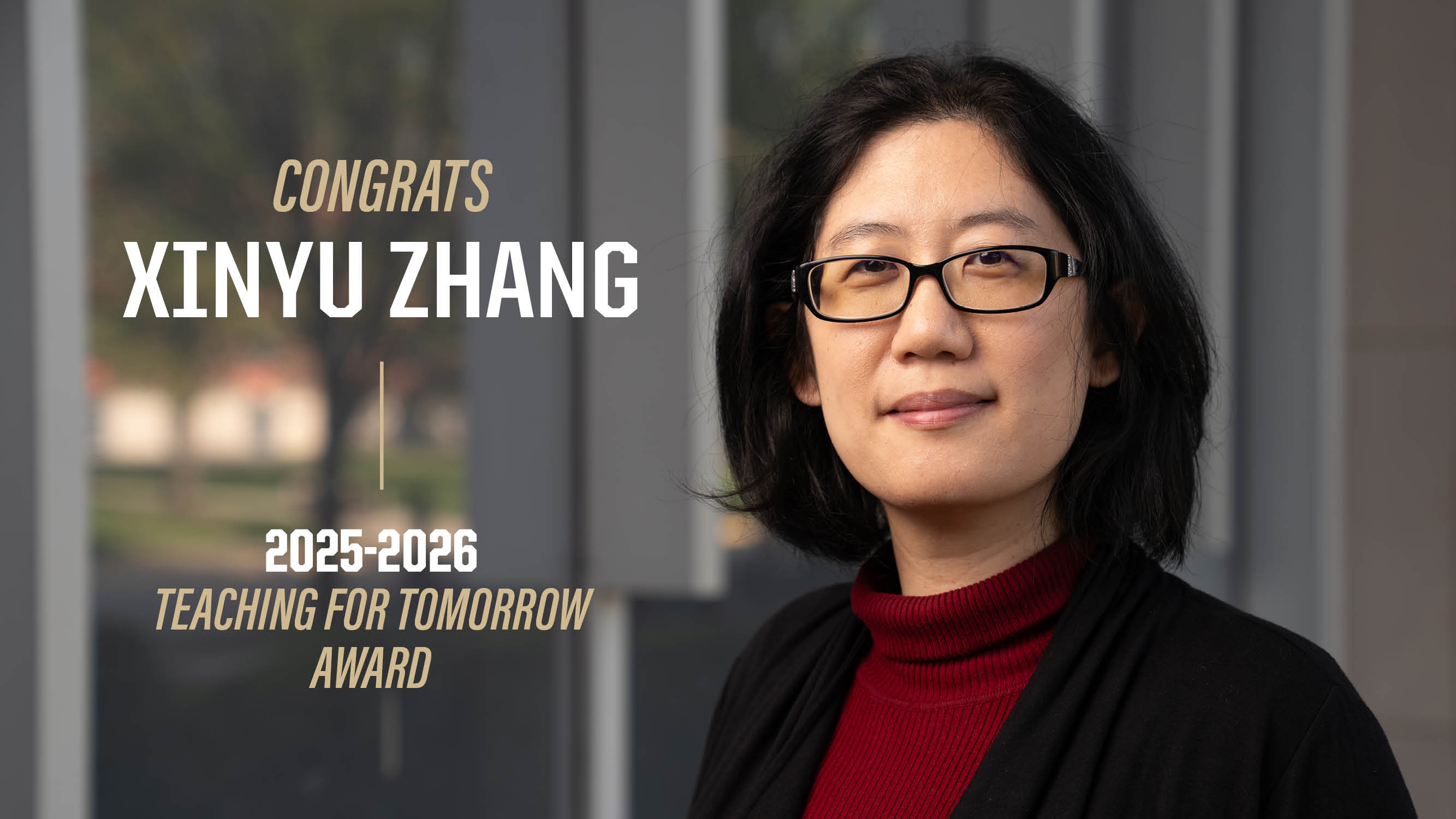Professor Xinyu Zhang Honored with “Teaching for Tomorrow” Award
| Author: | Lacy Gehmlich |
|---|

As the field of Environmental and Ecological Engineering (EEE) rises to meet the world’s sustainability challenges, Professor Xinyu Zhang is helping shape the next generation of engineers with vision, creativity, and a deep commitment to student success. An assistant professor of engineering practice in Purdue University’s EEE program, Zhang was recently named a recipient of the “Teaching for Tomorrow” (TfT) Fellowship Award—an honor that recognizes early-career faculty who exemplify excellence in teaching and mentorship.
For Zhang, the award is more than a personal milestone. “It’s a deeply meaningful recognition,” she says. “It reflects not just my efforts, but also the support I’ve received from colleagues and students in EEE, the College of Engineering, and the entire Purdue community.”
The TfT Fellowship is part of Purdue’s Transformative Education 2.0 initiative, which aims to reimagine the student experience through innovation and engagement. Zhang furthers this mission by bringing real-world environmental challenges into the classroom and equipping students with the tools to solve them.
“This award motivates me to further integrate my teaching and engineering education research in ways that benefit students directly,” she explains. Her plans include expanding undergraduate research opportunities, incorporating virtual and augmented reality into EEE coursework, and fostering interdisciplinary collaboration that reflects the complexity of environmental systems. “I want to prepare students not just for today’s challenges, but for the ones we can’t yet see.”
Zhang’s teaching philosophy is rooted in active learning, inclusivity, and curiosity. Over the years, she has moved away from traditional lectures in favor of hands-on, collaborative experiences that connect theory to practice. “I strive to create a classroom environment where every student feels seen, supported, and challenged to grow,” she says.
Her approach is especially relevant in EEE, a field she describes as “at the frontier of addressing pressing global challenges in environment and sustainability.” From clean water to sustainable infrastructure and environmental policy, EEE professionals are tasked with balancing the needs of people, planet, and profit. To prepare students for this evolving landscape, Zhang emphasizes critical thinking, lifelong learning, and ethical responsibility. “There will always be something new in EEE students’ future careers,” she notes. “My goal is to equip them with the mindset and tools to adapt and lead.”
Zhang’s path to EEE was shaped by a blend of academic and industry experience. After earning her Ph.D., she worked in engineering consulting and biotechnology before returning to academia, earning her Professional Engineer (PE) license in 2021.
Today, Zhang is not only advancing the field of EEE through innovative teaching but also contributing to the scholarship of engineering education. Her work bridges the gap between research and practice, ensuring that students are not only knowledgeable but also innovative, ethical, and ready to make a difference.
As she looks to the future, Zhang remains committed to her mission: to inspire, to innovate, and to empower students to engineer a more sustainable world.
